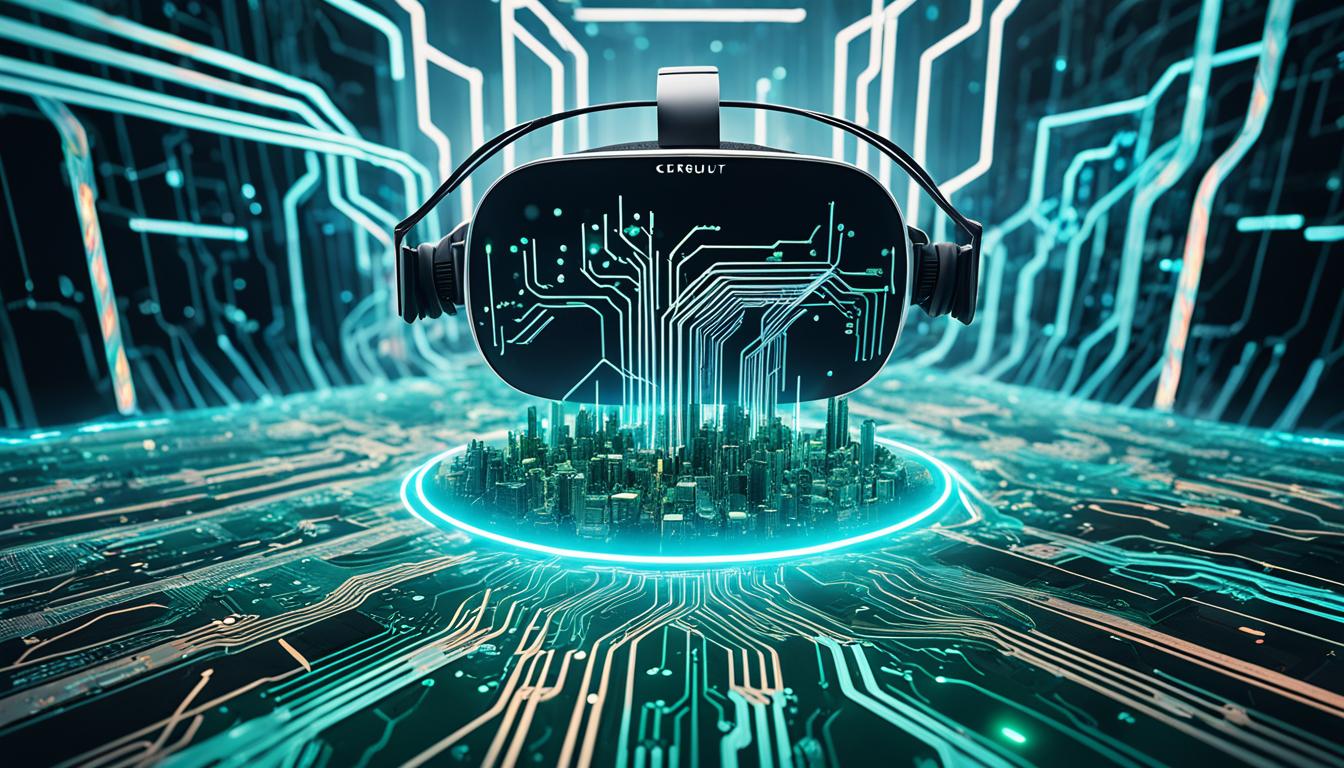Latest Technology: Innovations Shaping the Future

The rapid advancements in technology have transformed the way we live, work, and interact with the world around us. From artificial intelligence (AI) to cloud computing, the latest technological innovations are revolutionizing industries and shaping the future. This article explores the cutting-edge developments that are poised to have a profound impact on our society.
Key Takeaways
- The latest technology advancements are reshaping various industries, including artificial intelligence, data science, and cloud computing.
- Artificial intelligence, with its capabilities in machine learning, deep learning, and natural language processing, is driving groundbreaking innovations.
- Data science and big data analytics are enabling organizations to uncover valuable insights and make more informed decisions.
- Cloud computing is offering businesses and individuals unprecedented scalability, flexibility, and cost-effectiveness.
- Blockchain technology is revolutionizing trust, transparency, and the exchange of value in various sectors.
Embracing Artificial Intelligence
The world of technology is being transformed by the rapid advancements in artificial intelligence (AI). At the forefront of this revolution are the impressive capabilities of machine learning, deep learning, and natural language processing (NLP).
Machine Learning: Revolutionizing Decision-Making
Machine learning algorithms are empowering computers to learn from data and make informed decisions without the need for explicit programming. By analyzing vast amounts of information, these intelligent systems can identify patterns, make predictions, and optimize processes in ways that were previously unimaginable.
Deep Learning: Unlocking the Power of Data
Deep learning, a specialized branch of machine learning, is unlocking the true potential of data by mimicking the neural networks of the human brain. This sophisticated technology is able to process and interpret complex, unstructured data, enabling breakthroughs in fields such as computer vision, speech recognition, and language understanding.
Natural Language Processing: Bridging the Human-Machine Divide
Natural language processing (NLP) is bridging the gap between humans and machines, allowing for more natural and intuitive interactions. By enabling computers to understand and generate human language, NLP is transforming the way we communicate with technology, opening the door to more efficient and user-friendly applications.
The integration of these cutting-edge AI technologies is revolutionizing decision-making, data analysis, and human-machine interactions, ushering in a new era of intelligent solutions that are shaping the future of our world.
Data Science: The New Frontier
The exponential growth of data has ushered in the era of data science, where organizations are leveraging advanced data science analytics to uncover valuable insights and make more informed decisions. Big data analytics, which involves the collection, processing, and analysis of large and complex datasets, is enabling businesses to extract meaningful patterns and trends that were previously hidden.
Predictive modeling, a key component of data science, is allowing organizations to forecast future outcomes and make proactive decisions. By harnessing the power of advanced algorithms and statistical modeling techniques, data science professionals can identify patterns, predict trends, and uncover hidden correlations that can drive strategic business decisions.
Big Data Analytics: Extracting Insights from Complexity
The vast amounts of data generated by modern technologies, from social media to internet-connected devices, have created an unprecedented opportunity for organizations to gain valuable insights. Big data analytics involves the collection, storage, and analysis of these large, complex datasets, enabling businesses to identify trends, patterns, and anomalies that can inform decision-making and drive strategic initiatives.
By leveraging powerful data science tools and techniques, such as machine learning and natural language processing, organizations can extract meaningful insights from this wealth of data, unlocking new opportunities for growth, innovation, and competitive advantage.
Predictive Modeling: Peering into the Future
Predictive modeling, a core aspect of data science, is transforming the way organizations approach decision-making. By developing sophisticated algorithms and statistical models, data scientists can forecast future outcomes and trends, enabling businesses to make more proactive and informed decisions.
From anticipating customer behavior and identifying potential risks to optimizing operations and streamlining resource allocation, predictive modeling is empowering organizations to stay ahead of the curve and navigate an increasingly complex and dynamic business landscape.
Cloud Computing: Boundless Scalability
The rise of cloud computing has revolutionized the way businesses and individuals access and utilize technology. This transformative force in the world of technology offers unprecedented scalability, flexibility, and cost-effectiveness, empowering organizations to adapt and thrive in an ever-evolving digital landscape.
By leveraging cloud-based infrastructure, software, and platforms, companies can rapidly scale their operations, accessing cutting-edge technologies and reducing the burden of IT management. The cloud’s boundless scalability has enabled businesses to respond more effectively to changing market conditions and consumer demands, ensuring they stay ahead of the curve.
The versatility of cloud computing extends beyond just scalability. Businesses can now access a wide range of cloud-based services, from data storage and processing to advanced analytics and artificial intelligence, all without the need for significant upfront investments or extensive in-house IT resources. This democratization of technology has empowered even smaller organizations to compete on a level playing field, fostering innovation and disruption across industries.
As the global economy becomes increasingly digital, cloud computing stands as a pivotal technology that empowers businesses to thrive in the modern era. By harnessing the power of the cloud, organizations can focus on their core competencies, innovate more rapidly, and adapt to changing market demands with agility and efficiency.
Blockchain: Transforming Trust and Transparency
At the forefront of the latest technological advancements, blockchain technology is revolutionizing the way we think about trust, transparency, and the exchange of value. This distributed ledger system, which underpins the world of cryptocurrencies, is empowering a new era of decentralized finance (DeFi) and enhancing supply chain traceability.
Decentralized Finance (DeFi): Reshaping the Financial Landscape
Blockchain-based DeFi platforms are reshaping the financial landscape by providing more accessible and transparent financial services. By eliminating the need for intermediaries, these decentralized systems are enabling individuals to engage in peer-to-peer transactions, access loans, and manage their investments with greater autonomy. The transparent nature of blockchain technology ensures that all transactions are recorded immutably, fostering trust and accountability within the financial ecosystem.
Supply Chain Traceability: Ensuring Accountability
Beyond the realm of finance, blockchain is also revolutionizing supply chain management. By integrating blockchain into the supply chain, companies can enhance traceability and accountability throughout the entire production and distribution process. This technology allows stakeholders to track the origin, authenticity, and movement of goods, ensuring greater transparency and enabling more informed decision-making. As consumers demand greater transparency and ethical sourcing, blockchain-powered supply chain traceability is becoming a critical component of modern business operations.
“Blockchain technology has the potential to transform industries by fostering greater trust, transparency, and efficiency. As the technology continues to evolve, we can expect to see even more innovative applications that will shape the future of our digital landscape.”

Cybersecurity: Safeguarding the Digital World
As the world becomes increasingly digital, the importance of cybersecurity has never been more critical. Cyber threats, such as data breaches, ransomware attacks, and malware, pose significant risks to individuals, businesses, and governments. To combat these challenges, the latest technology advancements in cybersecurity are revolutionizing the way we protect our digital assets.
Ethical Hacking: Proactive Defense Strategies
One of the most effective tools in the cybersecurity arsenal is ethical hacking. By employing the same techniques used by malicious hackers, ethical hackers are able to identify vulnerabilities in systems and networks, allowing organizations to address these weaknesses before they can be exploited. This proactive approach to cybersecurity enables companies to stay one step ahead of cyber threats, strengthening their defenses and safeguarding their critical data.
Encryption Technologies: Securing Data and Communications
Alongside ethical hacking, encryption technologies are playing a vital role in the fight against cyber threats. By securing data and communications through advanced encryption algorithms, organizations can protect sensitive information from unauthorized access. These cutting-edge encryption solutions are essential for safeguarding the digital world, ensuring that confidential data and communications remain secure, even in the face of increasingly sophisticated cyber attacks.
The Internet of Things: Connecting Everything
The Internet of Things (IoT) is transforming the way we interact with the world around us, connecting a vast network of devices, sensors, and systems. This technological revolution is enabling the creation of smart cities, where urban infrastructure and services are optimized through the integration of IoT technologies.
Smart Cities: Optimizing Urban Living
In smart cities, IoT-powered systems and applications are revolutionizing the way we manage transportation, utilities, public safety, and other essential services. By leveraging a network of interconnected devices, cities can gather real-time data, automate processes, and make more informed decisions to enhance the quality of life for their residents. From intelligent traffic management to efficient energy distribution, the Internet of Things is helping to create more sustainable, livable, and efficient urban environments.
Industrial IoT: Streamlining Manufacturing Processes
Beyond the urban landscape, the Industrial IoT (IIoT) is transforming the manufacturing sector. By integrating sensors, machines, and data analytics throughout the production chain, IIoT is revolutionizing the way companies streamline their operations, improve efficiency, and enhance productivity. From predictive maintenance to automated quality control, the industrial IoT is helping manufacturers to reduce costs, minimize downtime, and deliver higher-quality products.
The interconnected nature of the Internet of Things is paving the way for a more efficient, sustainable, and responsive world. As the IoT ecosystem continues to evolve, we can expect to see even more transformative applications that will shape the future of our cities, industries, and daily lives.
Latest Technology: Empowering Innovation
The latest technology advancements are empowering innovation across various industries, with augmented reality (AR), virtual reality (VR), and 5G networks playing pivotal roles. These cutting-edge innovations are transforming the way we interact with the digital world, creating more immersive and engaging experiences for users.
Augmented and Virtual Reality: Immersive Experiences
Augmented reality and virtual reality are revolutionizing industries such as gaming, entertainment, and e-commerce. By blending the physical and digital realms, these technologies are offering users unprecedented levels of immersion and interactivity. From virtual shopping experiences to immersive gaming environments, AR and VR are redefining the boundaries of what is possible, empowering businesses to deliver more engaging and personalized offerings to their customers.
5G Networks: Accelerating Digital Transformation
The rollout of 5G networks is a game-changer in the world of latest technology. This ultra-fast, low-latency, and highly reliable connectivity is enabling a new era of digital transformation, paving the way for the widespread adoption of emerging technologies. With 5G, businesses can unlock the full potential of the Internet of Things (IoT), cloud computing, and real-time data analytics, optimizing operations, improving efficiency, and enhancing the overall customer experience.
Quantum Computing: Unleashing Incredible Power
The realm of quantum computing is poised to revolutionize the way we tackle complex problems that have long eluded classical computing systems. By harnessing the principles of quantum mechanics, such as superposition and entanglement, this emerging technology holds the promise of unlocking computational power that far surpasses the capabilities of traditional computers.
At the heart of quantum computing lies the ability to manipulate and process information using quantum bits, or qubits, which can exist in multiple states simultaneously. This fundamental difference from classical bits, which can only exist in a binary state of 0 or 1, allows quantum computers to explore a vast number of potential solutions in parallel, dramatically accelerating problem-solving in fields like cryptography, materials science, and drug discovery.
One of the most captivating aspects of quantum computing is its potential to revolutionize cryptography, the cornerstone of secure communication and data protection. Quantum computers, with their ability to factor large numbers more efficiently than classical computers, could potentially break the encryption algorithms that currently safeguard sensitive information. This has sparked a race to develop quantum-resistant encryption techniques, ensuring the continued security of our digital infrastructure.
Beyond cryptography, quantum computing holds immense promise for advancements in materials science and drug discovery. By simulating the behavior of complex molecular structures and chemical reactions, quantum computers can provide insights that were previously inaccessible, accelerating the development of new materials and pharmaceuticals.
As the field of quantum computing continues to evolve, the potential applications and impact on our society are truly limitless. From revolutionizing financial modeling to enhancing the design of more efficient renewable energy systems, this technology is poised to unlock incredible computational power and transform the way we approach some of the most complex challenges facing our world.

Renewable Energy: Sustainable Solutions
As the world grapples with the pressing challenges of climate change, the latest technology advancements in renewable energy are providing sustainable solutions. Solar power and wind energy, in particular, are at the forefront of this transformation, harnessing the abundant and renewable resources of the sun and the wind to generate clean and reliable electricity.
Solar Power: Harnessing the Sun’s Energy
Solar power technology has made significant strides in recent years, making it an increasingly viable and cost-effective option for both residential and commercial applications. By converting the sun’s abundant energy into electricity, solar panels are not only reducing our reliance on fossil fuels but also creating new economic opportunities and driving the transition towards a more sustainable future.
Wind Energy: Capturing the Power of the Wind
Wind energy has also emerged as a key player in the renewable energy landscape. Innovative wind turbine designs and advancements in materials science have led to the development of larger, more efficient, and more reliable wind farms, both onshore and offshore. These wind-powered systems are not only generating clean electricity but also contributing to the diversification of our energy portfolio and reducing our carbon footprint.
Together, solar power and wind energy are leading the charge in the renewable energy revolution, offering sustainable solutions that are transforming the way we generate and consume electricity. As these innovative technologies continue to evolve and become more accessible, they will play a crucial role in shaping a greener, more sustainable future for generations to come.
Biotechnology: Revolutionizing Healthcare
Biotechnology, the application of biological processes and technologies to develop innovative solutions, is revolutionizing the healthcare industry. Advancements in gene editing, such as CRISPR-Cas9 technology, are enabling precise genetic modifications, paving the way for groundbreaking treatments and cures for various diseases.
Gene Editing: Precise Genetic Modifications
The field of biotechnology has seen remarkable progress in gene editing, with the CRISPR-Cas9 system emerging as a transformative tool. This technology allows for precise and targeted modifications of genetic sequences, opening up new possibilities for treating genetic disorders, combating infectious diseases, and even enhancing human traits. As researchers continue to refine and expand the applications of gene editing, the potential to address a wide range of healthcare challenges is becoming increasingly tangible.
Personalized Medicine: Tailored Treatment Approaches
Furthermore, the field of personalized medicine is transforming the way healthcare is delivered. By leveraging an individual’s unique genetic profile and medical history, clinicians can now develop tailored treatment approaches that are more effective and better suited to the patient’s specific needs. This shift towards personalized medicine has the potential to improve patient outcomes, reduce the risk of adverse reactions, and ultimately lead to a more efficient and effective healthcare system.
Robotics and Automation: Enhancing Efficiency
The latest technology advancements in robotics and automation are transforming industries and enhancing efficiency across various sectors. From streamlining manufacturing processes to assisting with daily tasks, these innovative technologies are revolutionizing the way we work and live.
Industrial Robotics: Streamlining Manufacturing
Industrial robotics are at the forefront of this technological revolution, revolutionizing manufacturing processes and improving productivity, quality, and safety. Automated assembly lines, precision welding, and pick-and-place operations are just a few examples of how industrial robotics are enhancing the efficiency of manufacturing facilities, enabling faster production, reduced errors, and increased worker safety.
Service Robotics: Assisting in Daily Life
Beyond the industrial realm, service robotics are making a significant impact on our daily lives. From autonomous vacuum cleaners and lawn mowers to robotic caregivers and surgical assistants, these advanced robots are providing valuable support and improving the quality of life for individuals. As service robotics continue to evolve, we can expect to see even more innovative applications that seamlessly integrate into our daily routines and enhance our overall well-being.
Conclusion
The latest technology innovations are transforming industries and shaping the future in profound ways. From the advancements in artificial intelligence and data science to the breakthroughs in renewable energy and biotechnology, these cutting-edge developments are ushering in a new era of digital transformation. As we continue to embrace these latest technology innovations, we can expect to see even more remarkable changes and improvements in the way we live, work, and interact with the world around us.
The future is both exciting and promising, and the potential of these innovations is truly limitless. These transformative technologies are not only enhancing efficiency and productivity but are also providing sustainable solutions to some of the world’s most pressing challenges. As we navigate this rapidly evolving landscape, it is crucial that we remain adaptable, innovative, and open to the possibilities that these cutting-edge developments can unlock.
The latest technology innovations we have explored in this article are just the beginning of a technological revolution that will continue to reshape our world. By embracing these advancements and harnessing their power, we can unlock new opportunities, drive progress, and create a more sustainable and prosperous future for all.

Visitor comments ( 0 )